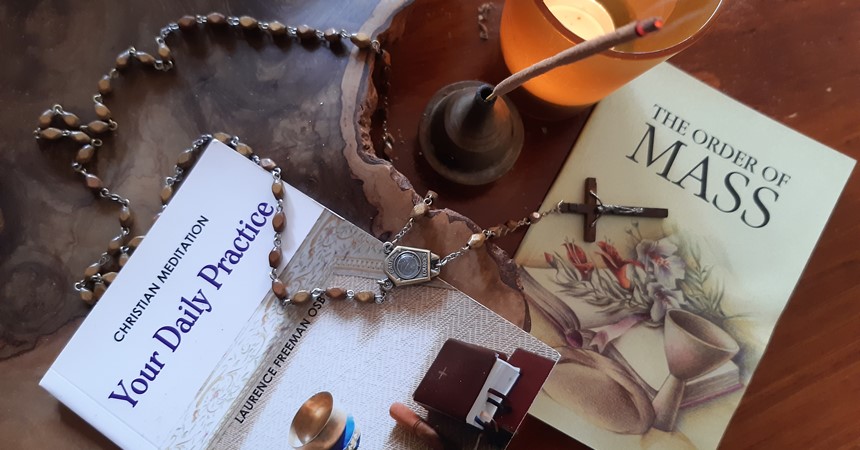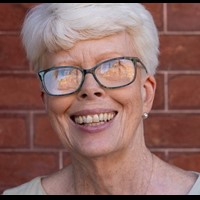Three things are leading me to ponder more deeply the nature of the Catholic Church as a community characterised by ‘unity in diversity’.
Firstly, as I have indicated previously, the Diocesan Liturgy Council continues to reflect on the Diocesan Synod Paper, listening for what it says about our ‘Worship and Prayer’.
Secondly, on Friday 16 July Pope Francis issued his Apostolic Letter, Traditionis Custodes, on the use of what we commonly call the ‘Latin Mass’ and which means Mass celebrated according to the 1962 Missal used prior to Vatican II.
Thirdly, the readings from Sunday (Sixteenth Sunday in Ordinary Time Year B). Having heard them proclaimed to the church gathered, we chew on them throughout this week, discerning how God is inviting us to participate in the paschal mystery in this place.
As we have heard Fr Richard Lennan say often, if there is no diversity, we are not catholic. Our unity in Christ is strengthened by the diversity of the community. Diversity of age, race, culture, gender, work, gifts, understandings and perspectives, location and all the other ways we are different. The community of faith united in Christ engages in dialogue, not debate. The community of faith united in Christ celebrates difference as a source of wisdom, not a problem to be solved. The community of faith united in Christ does not seek to homogenise difference to give the appearance of sameness.
It is interesting to consider the Synod Paper through the lens of ‘unity in diversity’. In it the voice of the people is heard longing to strengthen our unity in Christ:
- longing to deepen our relationship with God and each other.
- longing to deepen our understanding of those things that express our unity such as Eucharist, sacrament and mission.
- longing to be nourished for life and mission.
The voice of the people is also heard longing to celebrate our diversity:
- longing for a diversity of prayer and liturgical experiences.
- longing for an expansion of those involved in ministry.
- longing for prayer that is shaped by our indigenous brothers and sisters.
In this context, how is our local church to begin the journey of receiving Pope Francis’ Apostolic Letter issued ‘Motu Proprio’. How might this letter help us discern our path forward in a way that strengthens our unity IN diversity?
As a starting point we could reflect on how we avail ourselves of the deep and wide treasury of Catholic payer and liturgy that is ours. Can we think more critically and with more discernment about those liturgies that most deeply form and celebrate our essential unity AND those which more easily give expression to our diversity?
The Sacraments, particularly Eucharist – especially on Sunday – most profoundly celebrate and form our unity in Christ and our community. These are not the liturgies through which we seek to express our diversity. That said, the Sacraments do provide for great flexibility in the range of choices and options available in the liturgical books. We can certainly make better use of all these options, even on Sunday. The liturgy should ‘smell of the sheep’ who celebrate it.
The rest of our deep and wide treasury of Catholic prayer and liturgy provides us with opportunities to express and nourish our diversity. Some people love the Prayer of the Church – Morning and Evening Prayer. Some love Adoration and Benediction. Some love meditation and centering prayer. Some love devotions such as the rosary, the Stations of the Cross and the Novena. Many love to pray with the scripture, immersing themselves in one of the many forms of Lectio Divina. Some like to create a prayer or liturgical experienced centred on the Word of God, or a liturgical text or symbol. Some like to say prayers. Some like silence. Some like walks. Some seek contemplation. Some have a balance of personal and communal prayer.
When our faith life is expressed and nurtured by forms of prayer and worship that accommodate our diversity, we can more easily come together as a community in those celebrations which most profoundly express and form our unity in Christ and with each other. When we put all our eggs in one basket – for example, Mass – then that one liturgy is left bearing the weight of expectations that are meant to be met elsewhere.
We don’t need permission to pray in these diverse ways. We don’t need ‘the diocese to provide …’. The deep and wide treasury of Catholic liturgy belongs to all of us.
Sunday’s readings had a lot to say about a people ‘destroyed and scattered’, and about shepherds. Shepherds with integrity (aka Good Shepherds) lead the sheep to green pasture near restful waters where they can be revived, and accompany them even in valley’s of darkness. In Mark’s Gospel, expecting a bit of a break, Jesus steps ashore to be met by a large and needy crowd that has gathered from many parts. Jesus responds by feeding them.
How is this Word of God from Sunday inviting us to participate in the Paschal Mystery this week? The liturgy forms all of us in Christ, the good shepherd. How are we being invited to gather rather than scatter? Indeed, are we leading people to green pasture where they will be revived? One could hear the longings expressed in the Synod Paper as a longing for green pasture.
In a world ravaged with divisions, we the church in Christ are called to live as a sacrament (sign and instrument) of communion with God and of unity among people. More than ever the world needs us to show that it is possible to live as a community whose unity is strengthened, not scattered or torn apart, by diversity. This is part of our mission! We need to do this in our prayer and worship, so we learn how to live it every day. This is one of the ways we are called to participate in the Paschal Mystery today. It’s not easy.
What are you thinking? How are you/we being invited by our context, and this week’s readings, to explore and make use of our church’s treasury of prayer and worship? What might a parish community who did this look like? Where might room need to be made for the other or the new? What exciting possibilities are you imagining? Give it a go.
Acknowledgements
Image: © Sharon Murphy. Catholic Diocese of Maitland-Newcastle.

